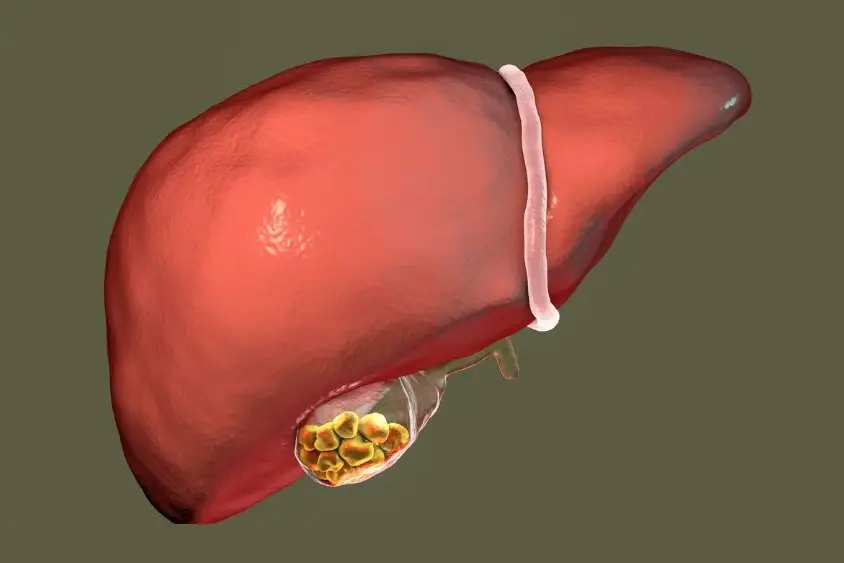5 Health tips to avoid digestive problems
Summertime is the time for fun, travelling and lots of family time.
Table of Contents
ToggleHowever, weather extremes in India can be brutal on your digestive problems, putting a healthy gut to the test and worsening any pre-existing gastrointestinal conditions. A few of the primary factors that can lead to less-than-optimal digestive problems and concerning gastrointestinal symptoms, like nausea, vomiting, diarrhoea, jaundice and constipation, include
- Dehydration: A Common Summer Challenge During the scorching summer months, high temperatures prompt our bodies to sweat profusely as a natural cooling mechanism. This increased perspiration causes a significant loss of fluids and electrolytes, potentially leading to dehydration and
- Dehydration: A Common Summer Challenge During the scorching summer months, high temperatures prompt our bodies to sweat profusely as a natural cooling mechanism. This increased perspiration causes a significant loss of fluids and electrolytes, potentially leading to dehydration. With the focus on staying cool and comfortable, it’s easy to forget the importance of regular hydration. Failing to replenish lost fluids can result in various health issues, including dizziness, headaches, and dry mouth. To avoid dehydration, it’s crucial to drink adequate water and electrolyte-rich beverages, especially when spending time outdoors or engaging in physical activities.
- Inconsistent Eating Habits: The Summer Food Dilemma Summer is the season of adventure, vacations, and outdoor gatherings, often leading to irregular eating patterns. Whether you’re on a road trip, enjoying a beach day, or indulging in summer treats, maintaining a structured and healthy meal schedule can become challenging. Unpredictable meal times can disrupt the digestive process, potentially causing discomfort, bloating, and indigestion. To address this issue, planning and carrying nutritious snacks and meals while on the go is advisable. These prepared options can help you avoid unhealthy food choices and maintain a balanced diet, even when your schedule is anything but regular.
- Exhaustion: The Toll of Summer Activities The summer season is synonymous with outdoor adventures, sports, and recreational activities. While this brings excitement and fun, it can also lead to physical exhaustion. Extended exposure to the sun and strenuous activities under the sweltering heat can deplete your energy levels, leaving you feeling drained and exhausted. Such fatigue can impact your digestive health, as a tired body may struggle to process food efficiently. To combat this, you must pace yourself, take regular breaks, and stay well-hydrated. Prioritizing rest and adequate sleep can help your body recuperate and maintain optimal digestive function.
- Frequent Infections: The Heat’s Effect on Food Safety Rising temperatures create favourable conditions for the rapid growth of bacteria and food spoilage. Food can become a breeding ground for harmful microorganisms, even when refrigerated, increasing the risk of foodborne illnesses. These infections range from common food poisoning to more severe conditions like hepatitis or liver damage. To mitigate this risk, it’s imperative to practice safe food handling and storage during the summer. Be vigilant about the freshness of food, maintain proper refrigeration, and avoid leaving perishable items in the heat for extended periods. Taking these precautions can safeguard your digestive system and overall well-being during the warmer months. With the focus on staying cool and comfortable, it’s easy to forget the importance of regular hydration. Failing to replenish lost fluids can result in various health issues, including dizziness, headaches, and dry mouth. To avoid dehydration, it’s crucial to drink adequate water and electrolyte-rich beverages, especially when spending time outdoors or engaging in physical activities.
- Inconsistent Eating Habits: The Summer Food Dilemma Summer is the season of adventure, vacations, and outdoor gatherings, often leading to irregular eating patterns. Whether you’re on a road trip, enjoying a beach day, or indulging in summer treats, maintaining a structured and healthy meal schedule can become challenging. Unpredictable meal times can disrupt the digestive process, potentially causing discomfort, bloating, and indigestion. To address this issue, it’s advisable to plan and carry nutritious snacks and meals while on the go. These prepared options can help you avoid unhealthy food choices and maintain a balanced diet, even when your schedule is anything but regular.
- Exhaustion: The Toll of Summer Activities The summer season is synonymous with outdoor adventures, sports, and recreational activities. While this brings excitement and fun, it can also lead to physical exhaustion. Extended exposure to the sun and engaging in strenuous activities under the sweltering heat can deplete your energy levels, leaving you feeling drained and fatigued. Such exhaustion can increase your digestive problem, as a tired body may struggle to process food efficiently. To combat this, it’s essential to pace yourself, take regular breaks, and stay well-hydrated. Prioritizing rest and adequate sleep can help your body recuperate and maintain optimal digestive function.
- Frequent Infections: The Heat’s Effect on Food Safety Rising temperatures create favourable conditions for the rapid growth of bacteria and spoilage of food. Even when refrigerated, food can become a breeding ground for harmful microorganisms, increasing the risk of foodborne illnesses. These infections can range from common food poisoning to more severe conditions like hepatitis or liver damage. To mitigate risk, it’s imperative to practice safe food handling and storage during the summer. Be vigilant about the freshness of food, maintain proper refrigeration, and avoid leaving perishable items in the heat for extended periods. By taking these precautions, you can safeguard your digestive system and overall well-being during the warmer months.

If you suffer from digestive problems, watching your summer months carefully can mean the difference between a summer spent in healthy enjoyment and enduring complete discomfort.
A few tips to help you are:
- As the summer heat intensifies, your body’s need for hydration becomes even more crucial. Dehydration can lead to various digestive issues, so incorporating fruits that are both rich in water and fibre into your diet can help maintain optimal digestive health. These refreshing and nutritious options have a cooling effect on your stomach and are perfect for snacking or when you’re on the go:
- Cucumber:
-
- Cucumbers are a remarkable choice, consisting of approximately 96% water – the highest water content of any food.
- They are not only incredibly hydrating but also low in calories, making them an excellent addition to your summer diet.
- Cucumbers can effectively replenish your body’s fluid levels, aiding in digestion and preventing dehydration-related digestive problems.
-
- Watermelon:
-
- Known for its delightful taste and high water content, watermelon is a summer favourite.
- With nearly 92 per cent water weight, it’s an ideal fruit to enjoy during the scorching months.
- Watermelon’s hydrating properties can help regulate digestion, prevent constipation, and alleviate various digestive discomforts.
-
- Melons (Cantaloupe):
-
- Melons, such as cantaloupe, offer a hydrating solution with over 90 per cent water content.
- Additionally, they are rich in essential vitamins, making them a nutritious choice for maintaining digestive health.
- The combination of hydration and nutrients in melons can promote smoother digestion and alleviate gastrointestinal issues.
-
- Pineapples:
-
- Pineapples, with their 86 per cent water content, provide a delicious and hydrating option.
- They are also a great source of vitamin C, which supports your immune system and overall well-being.
- Pineapples can aid in digestion and contribute to the prevention of digestive problems.
-
- Tomatoes:
-
- Tomatoes are an easily accessible and versatile choice, consisting of about 94 per cent water.
- They can be incorporated into salads and sandwiches or enjoyed as a refreshing snack.
- The high water content in tomatoes helps keep your digestive system functioning smoothly.
-
Incorporating these hydrating and fibre-rich fruits into your summer diet not only keeps you cool and refreshed but also helps prevent digestive problems. Their combination of water and fibre supports regular bowel movements, alleviates constipation, and ensures your digestive system operates at its best. Remember to stay hydrated and make these fruits a staple in your summer nutrition to enjoy a season of digestive wellness.
- Always try to consume fresh food: Foods spoil very easily in the summer due to the temperature and the humidity. Try to make fresh food and drink it on the same day. If this is impossible, try to freeze your food deep, especially if you plan to consume more than 24 hours later. Warm the food on a stove and cook for at least 5 minutes. This ensures that bacteria in the food are removed completely. If consuming packaged foods, read the expiration on every food item before consuming them.
- Load up on probiotics: Consume probiotic-rich foods as much as possible, like yoghurt Kefir. You can enjoy them in lassi(sweet drink) and chas ( salty and spicy). These ensure a good colonic microbiome, which is your ultimate immunity booster.
- Do not overeat/ plan your meals: Summer is the worst time for overeating. The digestion generally tends to become slow due to the temperature. Eat smaller meals and avoid eating heavy items that are fried or loaded with fat.
- Drink plenty of water: Keep yourself hydrated. During the hot summer months, our bodies keep us cool by sweating. Replenishing the water lost by sweating is essential. It’s important to be conscious of your water intake and ensure you’re not dehydrated. One great way to avoid dehydration is to drink water at a moderate pace, even if you don’t feel thirsty. Waiting until you are thirsty may lead you to overdrink water and become bloated. A fun tip to increase your water consumption is to flavour it with fruit or cucumber.
About The Author

Medically reviewed by Dr. Nivedita Pandey, MD, DM (Gastroenterology)
Senior Gastroenterologist & Hepatologist
Dr. Nivedita Pandey is a U.S.-trained gastroenterologist and hepatologist with extensive experience in diagnosing and treating liver diseases and gastrointestinal disorders. She specializes in liver enzyme abnormalities, fatty liver disease, hepatitis, cirrhosis, and digestive health.
All content is reviewed for medical accuracy and aligned with current clinical guidelines.
About Author | Instagram | Linkedin





